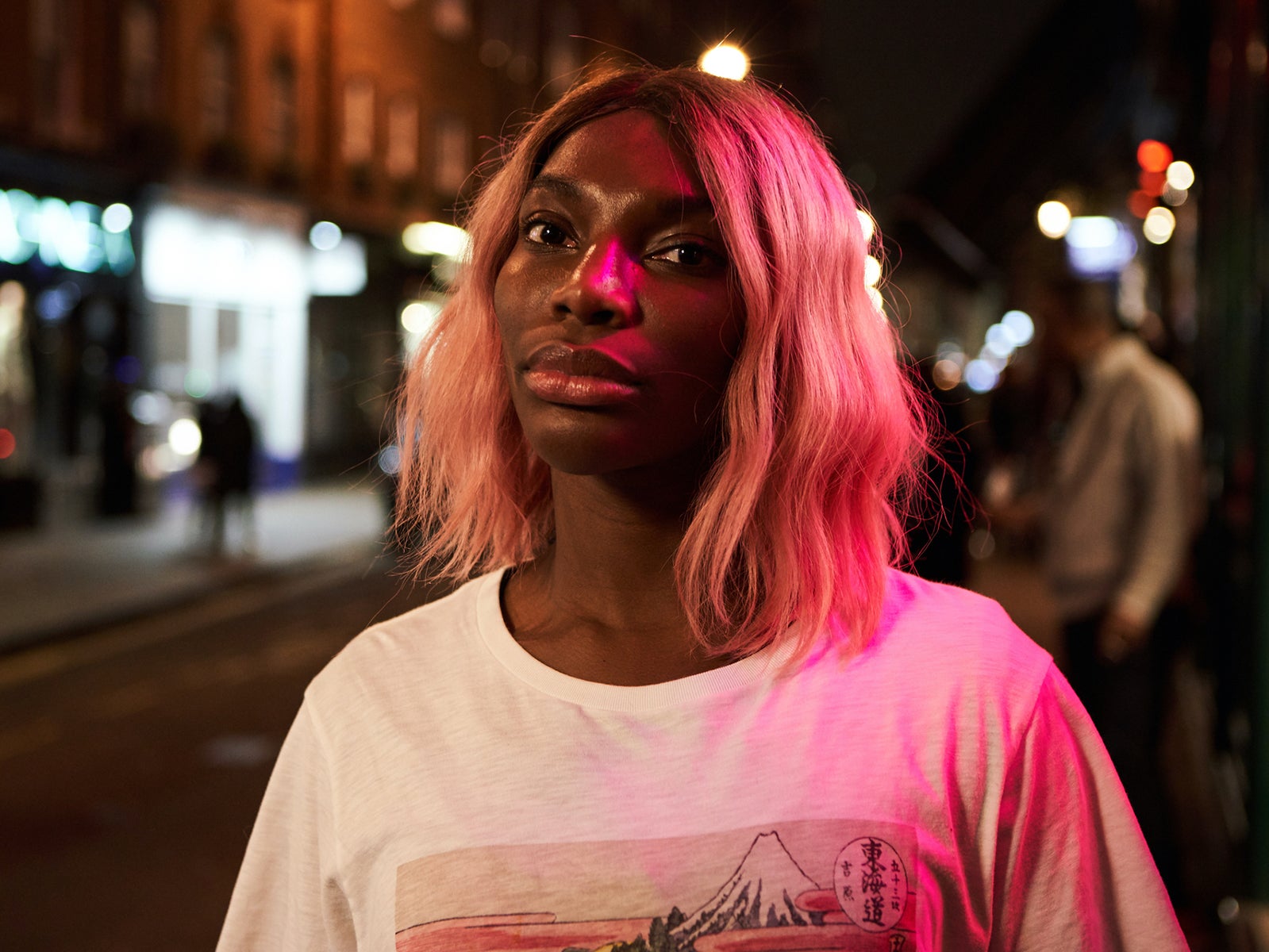The Independent's journalism is supported by our readers. When you purchase through links on our site, we may earn commission.
Michaela Coel says the word ‘responsibility’ has become ‘taboo’ when discussing drinks being spiked
Some have criticised the ‘I May Destroy You’ creator’s comments for implying victims should take some ‘responsibility’

Michaela Coel has spoken about how she perceives her experience of suffering sexual assault after her drink was spiked, stating that the word “responsibility” has become “taboo”.
Coel’s acclaimed BBC series I May Destroy You follows her character Arabella as she copes with the aftermath of being raped after being drugged, in scenes reminiscent of the creator’s own life.
During a recent appearance on The Economist‘s podcast, Coel discussed her experience in comparison to her character’s, explaining how she “gained some sort of power” when looking back upon the series of events.
While the 32-year-old’s television show has been lauded for its portrayal of topics including sexual assault and consent, some have criticised the comments she made on the podcast for suggesting that victims should take some “responsibility” when assessing the events that led to their drinks being spiked.
Coel began by stating that it “doesn’t sound right” if somebody says “you should have watched your drink” after a person has survived an assault.
“But if you whisper to yourself, at some point during your healing, ‘If I had watched my drink, this wouldn’t have happened,’ perhaps it doesn’t so scary. It’s just a fact,” Coel said.
The actor continued, stating that while people do not typically watch their drinks “constantly” or keep an eye on bartenders when they are pouring drinks, “the fact is if you were watching your drink, you would have seen somebody put some things in it”.
“When you start looking at that fact, you see a very grey area where it involves perhaps this word that’s become very taboo around this subject,” she said.
“And I understand why it’s taboo, and it’s going to get everybody’s backs up when the word comes out. It’s a scary word: responsibility.”
Coel stated that while she is not implying that her character Arabella “is responsible for what happened to her”, she “can find, within that scene of when her drink was spiked, she can find herself not being powerless”.
“When you dare to face that, for me personally, I gained some sort of power,” the director outlined.
“I don’t know why, but when I allowed myself to just look and go, ‘And there was the minute when perhaps I was looking somewhere else, for a second it could’ve been, and that’s when it happened’.”
Coel stated that in her view, this way of thinking “doesn’t place any blame” on herself.
However, in her opinion, “to shield anyone from that moment is to keep somebody as an infant”.
“You’re making them only see it from a two-dimensional view where there is a victim and a criminal and the criminal did everything, and you did nothing. Everything happened to you. But that is such a powerless way of seeing life,” Coel said.
Several people responded to the statements made by Coel on Twitter, expressing their opposition to her views.
“There was a criminal a predator and there was a victim end of. The victim has no responsibility for the situation in which their drink was spiked,” one person said in response, adding: “I hope you accept no responsibility for the actions of sick predators.”
“You don’t take responsibility for the actions of the perpetrator. When it comes to issues such as rape and so forth there’s a victim and a perpetrator, not the victim taking responsibility for someone else’s actions,” another remarked.
Someone else replied: “I understand that responsibility is something we all need, but in this situation it’s so difficult and disgusting to hear someone suggest that if you had more responsibility that bad things like date rape won’t happen to you. Actually mad.”
Another Twitter user said that while they disagree with Coel’s approach, “if this is how she has chosen to pick herself up and move on, then good for her”.
Someone else wrote that they feel the same way as Coel, tweeting: “This is it! A lot of my trauma hurt a little less as I started to take responsibility for my pain, I am still the victim but I no longer see myself as a helpless victim.”
You can find more information and advice for people affected by rape and sexual abuse at Rape Crisis or you can call the National Domestic Abuse Helpline on 0808 2000 247
Join our commenting forum
Join thought-provoking conversations, follow other Independent readers and see their replies
Comments
Bookmark popover
Removed from bookmarks